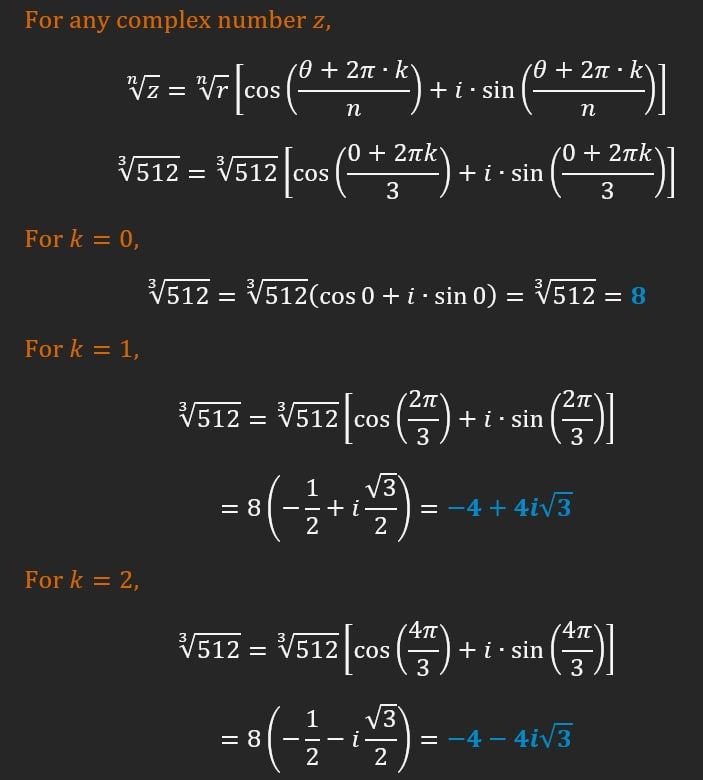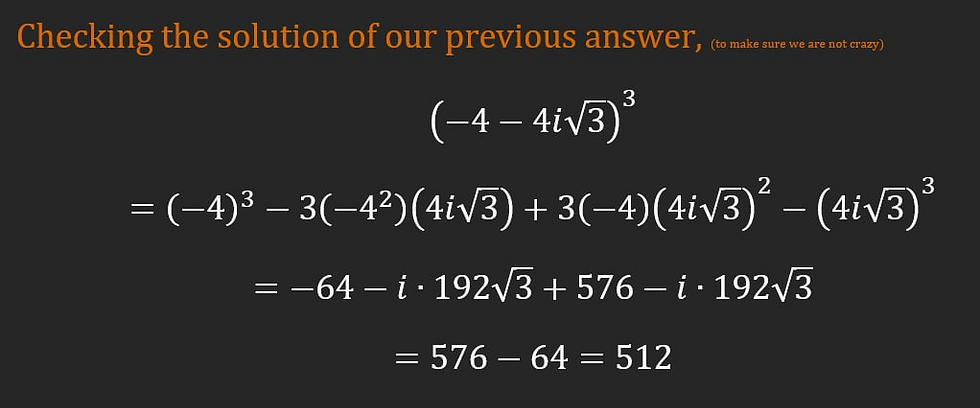Complex Roots
- youwei96
- Aug 30, 2022
- 1 min read
We're back to roots and complex numbers again.
One thing that has always fascinated me is the fundamental theorem of algebra, part of which states that any n-degree polynomial with complex coefficients has exactly n complex roots.
This means that a 5th degree polynomial will definitely always have 5 complex roots.
I stumbled into a rabbithole when casually trying to evaluate a cube root of a real number.
Real numbers are just complex numbers with no imaginary part.
So an equation like this is totally a n-degree polynomial with complex coefficients:

We first look at De Moivre's Theorem:

With this formula, we can then evaluate our original equation:

And of course, we should check our answer by cubing it again.

Also, dark mode is amazing.














Comments